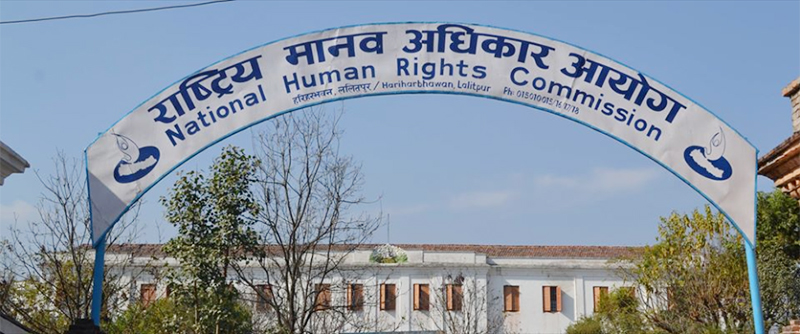Government urged to implement NHRC recommendations
KATHMANDU, NOVEMBER 3
The Government of Nepal should act without delay to implement the National Human Rights Commission’s recommendations, particularly those concerning Nepal’s obligation to investigate and prosecute those accused of serious abuses, Human Rights Watch and the International Commission of Jurists said today.
On October 15, the NHRC published a report detailing accounts of 20 years, naming 286 people, mostly police officials, military personnel, and former Maoist insurgents, as suspects in serious crimes. In the report its investigators concluded there was evidence warranting investigation and prosecution for abuses including torture, enforced disappearance, and extrajudicial killing.
According to a joint press release issued HRW and ICJ from New York today, the report provides important guidance to United Nations in vetting Nepali security forces for peacekeeping missions, and to other countries for efforts to ensure international justice including their obligation to prosecute or extradite individuals suspected of committing crimes under international law. “The NHRC has taken an important step in publishing the report, which will be an essential tool for UN and foreign governments in their engagement with Nepali security forces,” said Meenakshi Ganguly, South Asia director at HRW. “The report highlights just how little progress there has been to establish meaningful human rights protections to address conflict era violations and ongoing abuses.”
As per HRW and ICJ, international rights bodies and foreign authorities, including prosecutors and judicial authorities, should be aware of the commission’s report when considering targeted sanction for people accused of serious violations, or preparing criminal cases under the principal of universal jurisdiction against those allegedly responsible for crimes such as torture and enforced disappearances.
Serious rights violations and abuses were committed between 1996 and 2006, during armed conflict between government security forces and Maoist rebel forces.
The NHRC said in its report that the government had largely failed to act against suspects, despite being informed of the commission’s findings. HRW and ICJ have not independently investigated all the cases documented, but the Government of Nepal is under obligation to thoroughly and impartially investigate the allegations in the report with a view to bringing those responsible for those crimes to justice. Altogether, the NHRC has recommended action against 98 police officers, 85 soldiers, and 65 members of the former CPN-Maoist centre.
In the report the NHRC has analysed its findings and recommendations spanning two decades, since its establishment in 2000. It has registered 12,825 complaints and reached conclusions in 6,617 cases, making 1,195 recommendations to the government.
The recommendations have been carried out fully in only 13 per cent of cases, partially in 37 per cent cases, while no action has been taken in remaining 50 per cent cases. “This report has exposed the fact that the commission has struggled with lack of investigative capacity, failing in many cases to summon alleged perpetrators or demand documentation,” said Mandira Sharma, senior international legal advisor at the ICJ.
The NHRC has long been dogged by political interference in appointment of commissioners, and a widely perceived reluctance to confront the government or other powerful institutions, such as the army and political parties, that oppose accountability for rights abuses.






